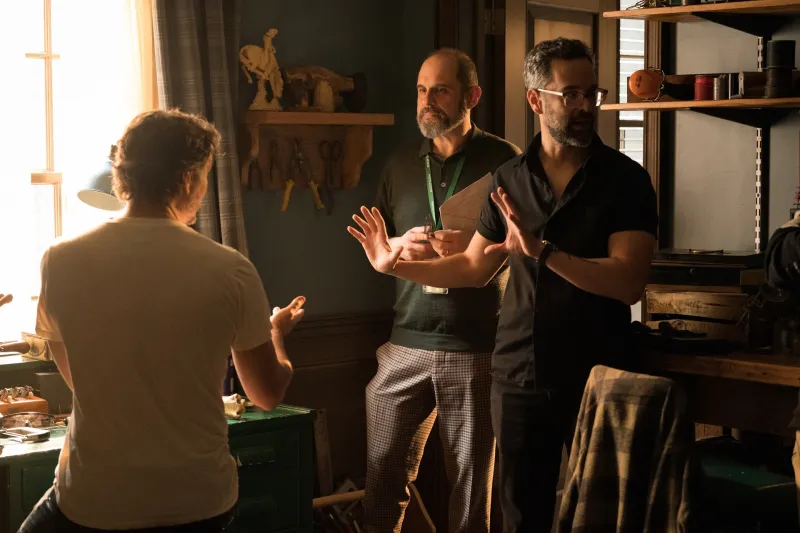

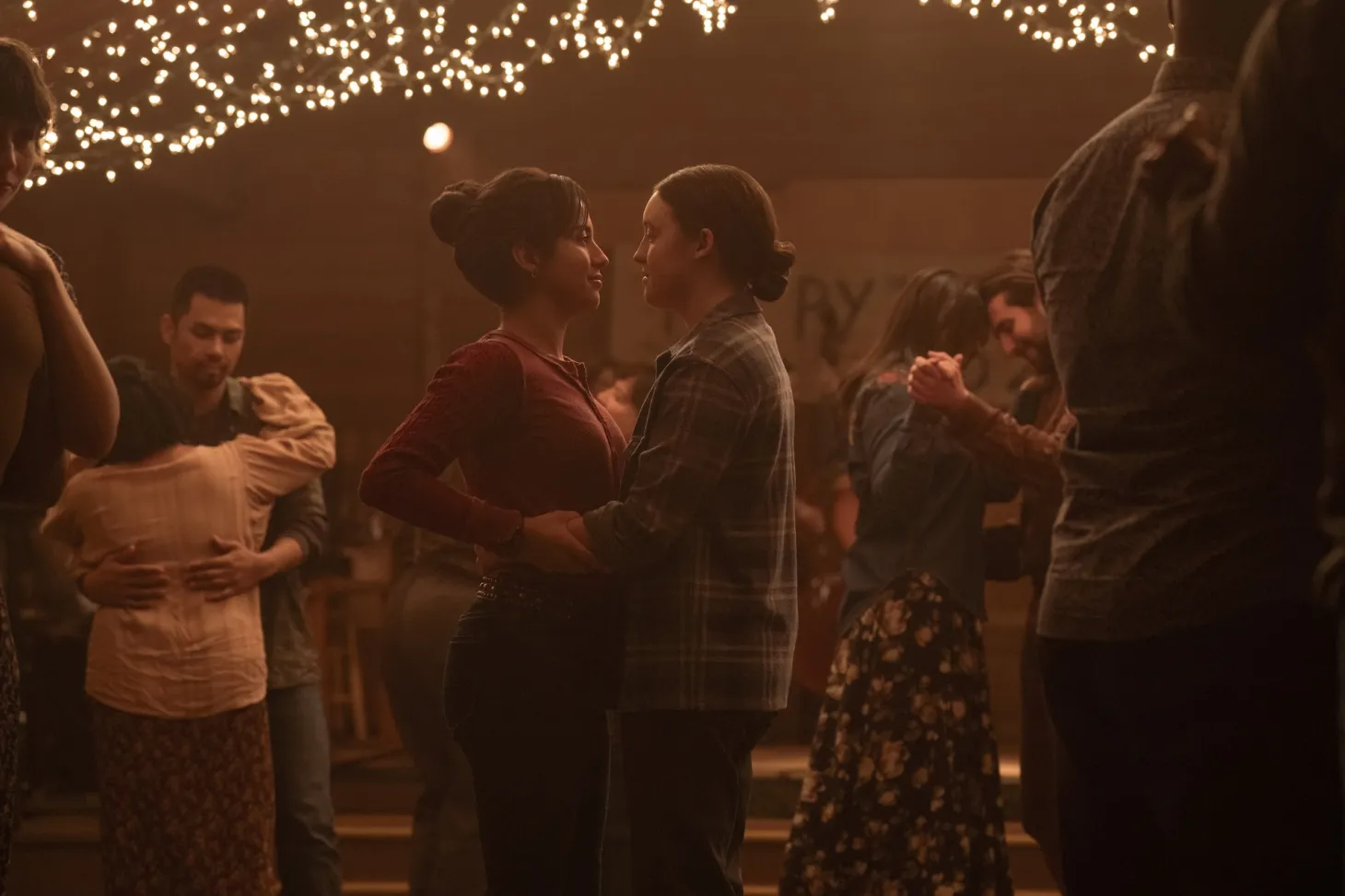
The sophomore season of HBO's The Last of Us premieres on April 13th, which is just a few weeks away! Ahead of the season's premiere, I spoke to Naughty Dog studio head and series co-creator and writer Neil Druckmann for roughly 30 minutes in a new exclusive interview for Game Informer. We discussed the challenges of adapting video games for TV, Druckmann's thoughts on directing episodes, the real-world parallels of the game and show, the infamous leaks surrounding The Last of Us Part II back in 2020, and so much more. Below is a transcription of the interview, edited for length and clarity. Some text has been blacked out due to potential spoilers (but you can click the text to see what it says).

Game Informer's Wesley LeBlanc: What was the hardest part about going from The Last of Us Part 1 to The Last of Us Part 2 video games? And to follow that, can you tell me about the contrast going from HBO's The Last of Us Season 1 to Season 2?
Naughty Dog studio head and co-creator of HBO's The Last of Us Neil Druckmann: When we made Part 1 [the game], it was purposefully designed because part of it was that I wasn't sure they would ever let me direct a game again. But I wanted to do something that was complete, had a beginning, middle, and end, and if I never got to do it again, then the story could stand on its own. And then to justify a sequel, it was trying to find a concept that could continue the themes of the first game and continue the journey with those characters, but make it a story that could stand on its own and also, with the two together, enrich each other. And again, kind of a similar thing [with Part 2 the game], not sure we could ever do it again, make sure it has a definitive ending, but in a lot of ways, mirrors a lot of the stuff that happens in the first game.
Getting into the second season was a very similar process. Obviously, it's a little bit different because even when we were making the first season, we were planting seeds for the future because we already had the second game under our belt, so we knew where major events and plot points were heading. Even while working on Season 1, we were discussing where the future of the show would go, and when we finally got greenlit for Season 2, we really laid out the rest of the story and how it would flow going from Season 1 to Season 2. It's the same thing – you want to enrich what happened in Season 1 but expand upon it and show how much further the story goes.
You mentioned you were not sure what was going to happen after the first game so you gave it your all. You're already getting multiple seasons for Part 2. Is it freeing knowing you don't have to put it all into Season 2 because you can maneuver in and out how you want?
Druckmann: Absolutely. We really get to take our time. We get to go on certain detours. We get to expand certain backstories and get to know certain characters. So, like the stuff we did in Season 1, but I feel like even more so we get to do it now because HBO has been – it's kind of like PlayStation in that way where they really trust us to make these high-level creative calls. The reason, for example, we have seven episodes is not because anybody told us "Do seven" or do any particular number. It was that we looked at the entire story that was left in front of us that we wanted to tell and that seventh episode is going to be the breaking point for this story, and then we pick it up in the following season from that point.
You shot an episode for Season 2. Going from Season 1 where you directed your first episode of television ever, what was the biggest lesson learned that you took into this Season 2 episode?
Druckmann: A big part of it with the first season is just that I was very nervous about how different it would be from everything that I know. Because of that, I think I was a bit more nervous, a bit more on edge that I get it right; I didn't want to be the weak link while everyone's bringing their top talent to this show. Having that be as successful as it was, and learning a lot of the differences between a game and a TV show from different people I've worked with, now certain people I've worked with a second time – for example, Ksenia Sereda who was my [Director of Photography] in Season 1, she's my DP in this episode as well, so we already have a shorthand from working together. This time it was a lot more comfortable, just hitting the ground running and really working with great shots, great performances, and I think we got something really special with this episode.
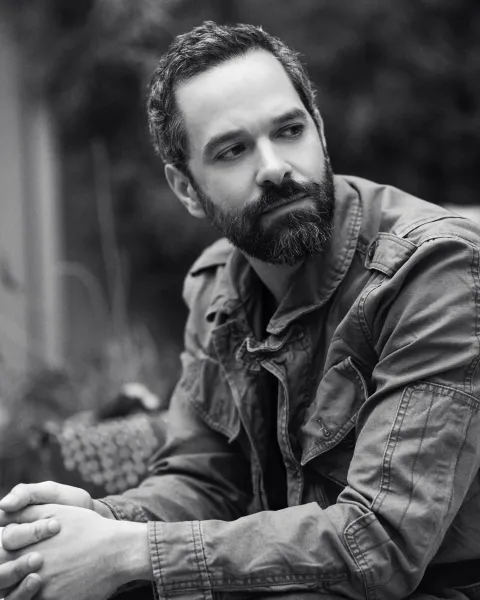
Based on what you've talked about when it comes to directing your episode for Season 1, does directing TV now still feel different from games? Because I know in modern game direction, you're directing on a motion capture set as if it's an episode.
Druckmann: The biggest difference is the order of operations. When we're doing performance capture for a game, we will run the scene from beginning to end, unless there's a certain reason to break it up because of maybe a limitation of space or something. And then once we have the performance, we're done. Then we figure out where's the wide shot, where's the close-up, we can change their costume, we can change the weather, we can change the location; you can even take a character's performance and lay it on another character. You have a lot of freedom after the fact. Here, you don’t have that freedom; what you get is pretty much what you're going to see, with some exceptions for VFX. So there's a lot more planning beforehand of things like "What are your shots going to be?" And then the way you capture it is [...] usually the way it works, you start with a master, you start with a wide shot, and then you start working your way in, focusing on one character and turning around, moving all the lights, focusing on another character, so you have to have a lot more precision and planning for live action because you're not going to get to tweak it much after the fact, again with some exceptions for VFX.
I'd say that's the biggest difference but as far as planning with storyboards – that's the same – working with actors – that's the same – giving an art direction – that's largely the same. The biggest difference being [that] instead of flying around with a controller to move the camera around and giving the team notes, now it's I'm walking around on my feet with the team behind me and talking about how we're going to adjust the set or adjust props, but it's all the same conversations. Art is art so there's actually a ton of overlap. And even soft skills as far as how you collaborate with a big team. How do you put trust in them? How do you spin multiple plates? These are all skills that are very similar in triple-A game development. And then in some ways, triple-A game development can be more complicated than this.
Season 1 stuck closely to Part 1 from a story standpoint, but you added additional flavor and context to the world. Is that the same vision going into adapting Part 2 or do you feel like you have more freedom to change things or add even more context because of the time gap?
Druckmann: The freedom was always there, even for Season 1. Obviously, this is a different medium. In a game, so much is about, "What are the actions that I'm doing?", and it's usually more action-oriented. But one of the things I love that HBO told us very early on is that, "Only have as much action, only have as much violence as you need for the story and no more." There wasn't a push to make it more action-oriented. It was about focusing on the characters, the relationships, the drama. And then we would ask ourselves, "Okay, where can we tell the story differently that's more suited for this medium than in a game?" And the biggest example we can probably point to is the Bill and Frank episode. In the game, it's very action-oriented and you get to know this character through an action sequence. Here, because we could actually even leave our main characters for a week, we could flesh out these characters and progress the story thematically, not necessarily through a plot point, to show what Joel and Ellie are going through.
That approach felt really successful to us and the processes might be very different but the results are going to be the same. So let's look at the game, look at it at a high level. What are its themes? What are we trying to say for these characters? What are the essentials for the things we want to hang on to because they already work? What things do not quite work because [...] certain sequences work better for the game versus TV or vice versa? Putting characters in different scenarios than what we've seen in the game [...] allows us to flesh out these characters even further and then we get to know them in a different way, sometimes more than what you see in the game.
People who are fans of the game and watch the show – this will give them greater knowledge of these characters if they go back and play the game and it should enrich that experience and vice versa. There are things the show will show that the game doesn't and things the game will show you that the show doesn't.
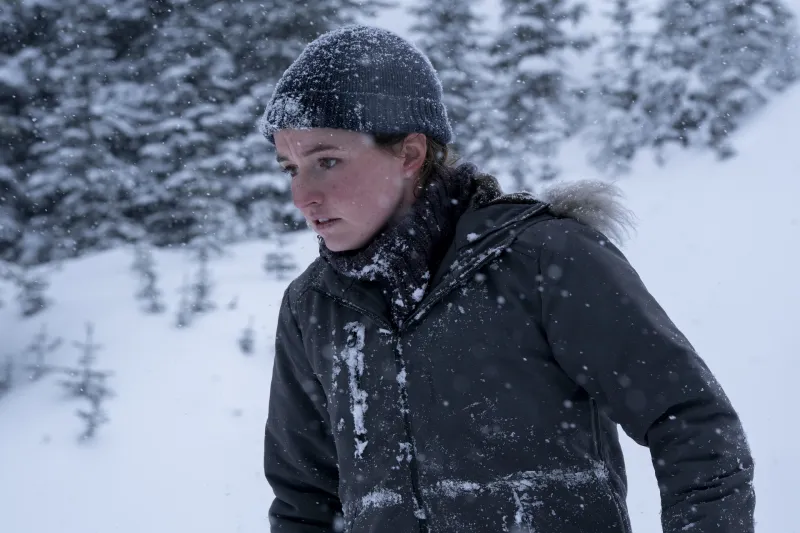
What was the process like for finding the show's Abby? And in that same line of thinking, what kind of prep goes into that because it's a heated character – Laura Bailey went through some not-great things in 2020 as a result – how do you prepare someone like Kaitlyn Dever coming into this role, possibly unaware of what happened because of that character?
Druckmann: I've known Kaitlyn now for several years. There was a period where we were making a Last of Us film and she was actually our top candidate for Ellie, for that film version. She was part of the table read and ever since then, I've been in touch with her. She was part of Uncharted 4: A Thief's End where she played Cassie Drake. So when we were thinking about Abby and who we could approach, our methodology, which is what we applied for Season 1, is we prioritize performance – a talented actor over anything else, meaning how they look, how they sound, that performance is more important to us; someone that can capture the spirit of the character through their performance. Immediately, both [HBO's The Last of Us showrunner and co-creator Craig Mazin] and I thought of Kaitlyn. Let's meet with her, talk with her about this character, and see how she feels about it. She's a fan of the games, and yeah, we openly talked about what this character means, possible fan reactions to this character, what happened, but I think like us, Kaitlyn was excited about the prospect. Abby's a really juicy character, if you're familiar with the game, you know there's a lot this character goes through. They are pivotal for where the story goes.
From the outside looking in, it seems Bella and Kaitlyn are really similar in stature and build. In the game, a big strength of Abby is her foreboding nature compared to Ellie. How are you injecting that into this live-action adaptation? Is it a personality thing instead of physicality? How do you make them equal in this adaptation?
Druckmann: It's not about making them equals, it's about making them unique. So much about what I find to be fun in storytelling is, "How do you approach conflict or what the story is about through the lens of different characters?" How do they view the world through experiences that they've had? What is her perspective to this narrative, to Joel, to what happened with the Fireflies – all of that. That's all more important to us than the physicality of the character. The physicality of the character is more important in the game because of how many things you confront in the physical that again, in the show, we don't have to have the same amount. If we had the same amount, it'd make for a pretty boring show. Therefore, as you finally watch the season, you'll see that [physicality] is less important than how they deal with these scenarios, and find it isn't quite identical to what it was in the game.
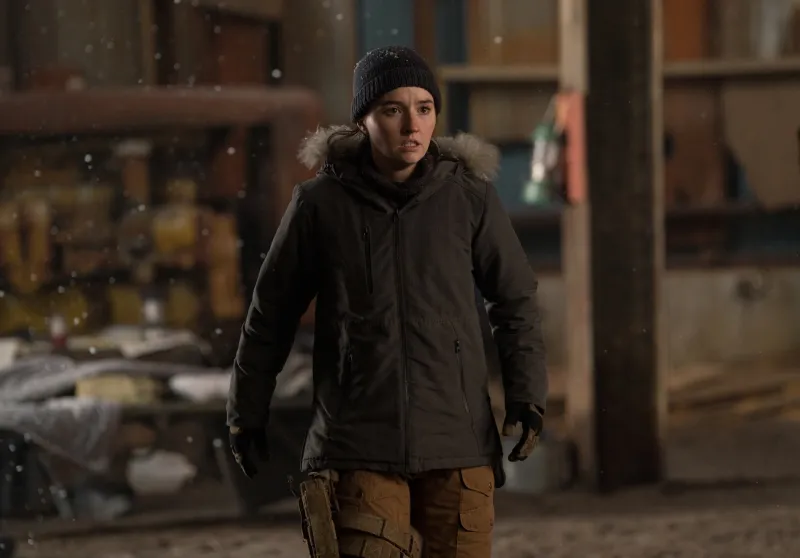
One of the bigger changes with Season 1 compared to the game was the spores, or lack thereof, and the Cordyceps network. How do you approach that with the infected in Season 2? There are Shamblers [in-game] that throw spore bombs but that's not going to matter in a world where spores aren't happening, right?
Druckmann: To make a slight adjustment in the game, spores didn't happen. So going forward, there's a lot of unknowns. [Stalkers, for example – Ellie might run into] a type of Stalker that behaves differently from anything we've seen so far and there's a certain intelligence in this one that creates a different kind of challenge for her, and that puts her in quite a bit of threat.
Is there a challenge in writing around an enemy like the Stalker? Because in the game, you can take a couple of hits and try to run away, but when we're watching it on TV, it's clear if a Stalker gets you, that's probably it. You're not really meant to survive an Infected attack. There's no crutch to heal up like you would in a game.
Druckmann: I think one of the challenges is to make the action believable, to make the Infected believable. It's all based on real science and then to not repeat ourselves because once you have a certain threat and the character survives it and then they see the same threat, as a viewer, you're going, "Well I’ve already seen how they survive this so how would this be any different," so it's about, "How do we up the ante without jumping the shark?" How do we up the ante and put them in new creative challenges to try and reach their goal without repeating ourselves?
What's the approach to religion in Season 2? It plays an important role, both for the characters and the wider conflict happening around Ellie and Abby's journey throughout Seattle. Do you have to change that when you're bringing it to a more general audience where religion is a hotter topic in the States, for example? Or is it about staying true to the original story?
Druckmann: No, it's about staying true to the story and religion is such a big part when you're dealing with the post-apocalypse or any kind of cataclysmic event; people turn to different things to try and deal with that. The Seraphites are a part of the story, though we're not revealing to what degree, but yes, that's a big aspect of the story.
There are a lot of memorable locations in Part 1 but they are quick checkpoints you stop at before moving on to the next. Part 2 takes place largely in Seattle, and I feel like Seattle is a character in this story. How do you go about injecting that character into this adaptation in a city that's not Seattle? [Editor's note: Season 2 was shot in places like Vancouver, Canada, despite locations in Seattle playing a pivotal role in the story]
Druckmann: Great question, and you're right: when making the game, we did view Seattle as a character, and some of its locations are very iconic and it was important for us to capture those places when we adapted this story, at least some of them. Two things that work in our favor: 1. Vancouver doubles for Seattle pretty well and 2. We have such an incredible art team that has been able to create the most incredible sets I've ever walked onto. Season 1 was really impressive. This season blows it out of the water. I'm always in awe of the most elaborate sets and how months of work goes into it and it's for such a short scene, you walk through it, and it's gone. That's part of the privilege of getting to make a show under the umbrella of HBO and the support we have from PlayStation Productions, as well. We just have many, many resources and very talented people to bring these locations to life.
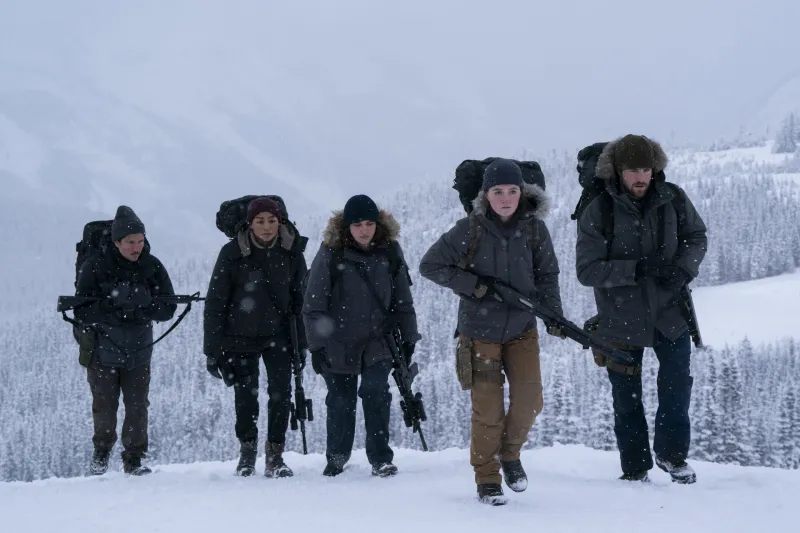
Part 2 is a heavy game, even compared to Part 1, which is a heavy game in its own way. Part 1 is about love and Part 2 is about hate. We're going to see Joel die. There are faction wars. People draw parallels to stuff happening in real life, whether that's the war in Ukraine, the war in Palestine. There's Lev’s trans story, which doesn't seem to be happening this season. There's a lot of pain points in the journey of Part 2 that are reflected in real life. How do you go about putting that on screen? Is there a worry that's too much in a world that already has a lot of this terrible s*** happening?
Druckmann: I'll answer this in a roundabout way: Many years ago, I was at PSX [PlayStation Experience]. While hanging off to the side doing this interview, I saw this fan waiting in the wings waiting to talk to me. He came over and said, "Listen, man, there's a period where I broke my hip, I went through a divorce, I was super depressed, I got suicidal, and your game helped me out of it." And I was like, "This depressing-a** game helped you out of it?" He said, "Yeah, there's just something about these characters going through hardship that was really helping me with real-world stuff." So I think some of my favorite stories have always reflected the reality that I live in. And this is no different. I tend to not worry too much about fear of an audience's reaction to something we're doing because it might be controversial, and more prioritizing, "Is this what the story needs? If this is what the story needs, then we gotta put it in the story and honor it for the weight that it has. If it doesn’t need it, then we should exorcize it from the story and not focus on it because we don't want anything gratuitous for the sake of shock value," and that's been our approach for both the game and this season.
A lot of Part 2 has this weight because it's my hands on the controller doing it. In this adaptation, we're just watching it. How do you go about making sure that weight and heaviness are in scenes even though I'm not playing it? Does that change the approach to how a scene plays out?
Druckmann: It absolutely changes the approach because you're right in that the immersion of the game, you can create a certain tension, a certain level of being in it. If we were trying to replicate that for the TV show, we would fail. So then you say, "Okay, so what are the strengths of the TV show? What are the things we could do?" And obviously, we can jump around with camera angles in a way we can't in the game to create certain tension and feelings, but we could also unplug from the protagonist. In the game, we were very hardcore about whatever protagonist you're playing, that’s the perspective from the beginning and nothing else. Here, we can jump from Joel and Ellie, we can jump to a totally different character and see their perspective. And sometimes, that's a side character that you barely got to see in the game and now we get to spend a lot of time with them and get to know them because it's going to add something to the main relationships of where we're going in the story, so it's really leaning into the strengths of a TV versus a game.
Going from Season 1 to Season 2, what is the biggest step up, other than the actual scale of the story?
Druckmann: It's very similar. There's a comfort that Pedro and Bella have with the characters and I think it's allowed them to dive deeper, and I believe their performances are even richer this time around based on everything they've built. And we get to spend more time with these characters quite a bit and see how they've evolved and changed and the conflict they have. It's seeing a new cast of characters, and seeing the ripple effects from the first season and the effect it has not just on the Jackson community but even beyond that. Earlier you said something that I've said in the past but it's more marketing speak: Game 1 is about love and Game 2 is about hate. That's just a simplified thing. They're really both about love and they're just different facets of it. The first season, the first game, is about the unconditional love a parent feels for their child. And this season, the second game, starts getting into what happens when someone hurts someone you love? How far are you willing to go to bring the person responsible to justice? And what will that do to you in the process? It's about exploring those themes that feel very relevant to the world we live in; it feels like a sort of cathartic experience both for ourselves, but I believe for our audiences.
Do you have to have a more cautious hand when crafting a story that stretches into our real world? For example, my wife played Part 2 for the first time with the remaster and it's a lot easier because she knows it's a game, it looks like a game, she's actually playing it. But when you get to an adaptation, we're going to see real people's heads bashed in, people dying in various ways…
Druckmann: There's a little bit. Look, the game is very realistic but it's not real life. And for some of the gameplay, we have to make certain concessions with the number of people you engage with or the number of infected you engage with, it’s less realistic than what a person could deal with. But we're prioritizing immersion over reality. But with the show, it's kind of taken the opposite approach which is we really want this to feel authentic and real, and because of that, with the violence, if we were to do too much of it, it would be very off-putting because it's so real. So that's where we really have to strike the balance of, "What is the kind of violence that we need to tell this story and no more?" And we have to really focus on that. Every time we have an action sequence, it can't just be for the action. It has to advance a relationship. It has to advance the story in a meaningful way. That's the challenge Craig and I always give ourselves when we have an action sequence. We say, "How do we make this action sequence character-driven and make those characters feel as real and believable as possible?"
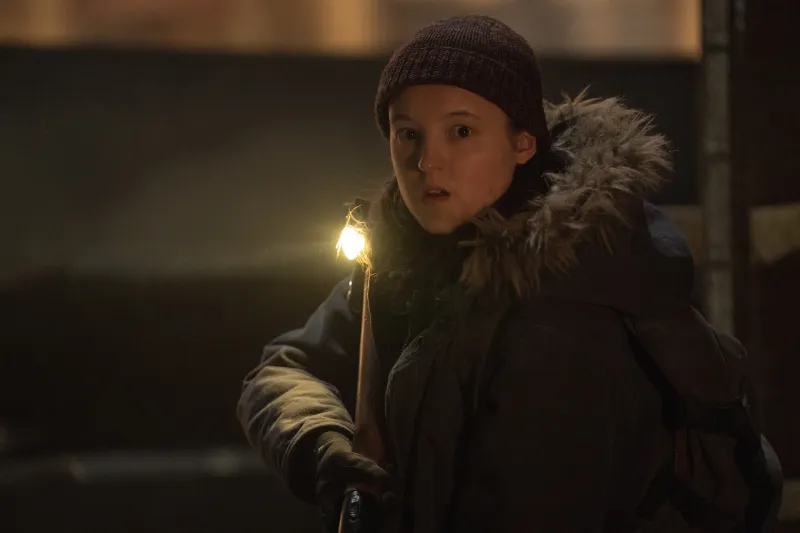
Joel's death at the hands of Abby leaked right before the game's launch, and it led to this unfair perception of Abby. I'm curious if that worry or that concern going into the adaptation is there because the internet is going to internet so people who have not played the game very well might be spoiled the same way people in 2020 were. Is there a concern or four years later, is that not something on your mind anymore?
Druckmann: I used to be really concerned with leaks, but I've just experienced so many of them that I stopped caring. I used to be more concerned with fan reaction and I experienced the worst of it when we had the leaks and COVID hit with the second game, and I stopped caring. I've always operated under that, "I’m not going to be worried about what the fan reaction is going to be. I don't have any control over that so I'm not going to be worried about it." What I do have control over is the crafting of the thing that's in front of me and leading a team to do that. So I want to make sure that we make something we're extremely proud of, that we're very thoughtful in making. And then we put it out into the world and the reaction is not up to us. That's up to our fans and how they react.
One of my favorite parts of Season 1 is the context it provided to the pandemic outside of the U.S. since the games are very U.S.-centric. I’m curious if that's something we can expect more of in Season 2 or if there are other ways you're providing context to this pandemic outside of Ellie and Abby's journey.
Druckmann: I can't say too much about that but again, just like with the first season, we're looking for ways to expand beyond the world and the story we told in the games.
I feel like I already know the answer because you do kill off a beloved character in Part 2 – it's the crux of the game.
Druckmann: [Editor's note: Druckmann interjects here] By the way, you're assuming the same thing happens in the show.
I am assuming and I don’t know [laughs].
Druckmann: I'm not confirming or denying anything.
Yes, that's fair, but when you're adapting something, is it different killing off characters or hurting beloved ones than in a game?
Druckmann: The short answer is no. As a writer, you have to love all of your characters. Heroes, villains, all of your characters. I actually try not to put that judgment on them and say, "This character is good, this character is bad." I think of them as flawed human beings who have wants and needs and obstacles in their way. And sometimes, their wants and needs put them in conflict with each other. But, you can't love them so much that they have plot armor. You have to love them enough to respect that whatever fate is in store for them to tell the best story you can, that's what in store for them and you have to lean into that.
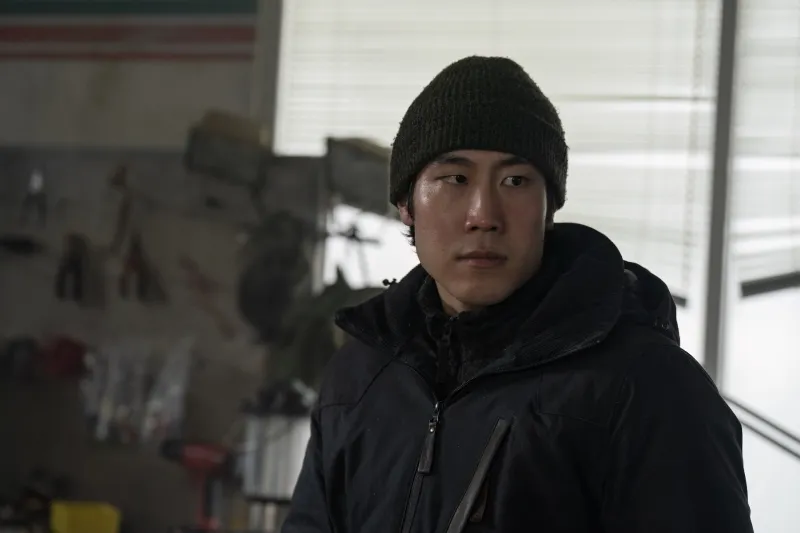
Music played a big role in Season 1, even more than it did in the first game, but music has a very forward role in Part 2 and I’m curious about your approach to adapting that beyond the actual composition of the score.
Druckmann: I kind of look at it like action sequences in that we don't want to just make music videos within our show or our game. Whenever there's a character playing a guitar or singing a song or there's a song that we're playing, what does it say about our world? What is it saying about our themes? If I do see a character playing or singing, how is it advancing our relationship? It can't just be a cool song. I'll go to the game: When you see Ellie play "Take On Me" to Dina, it's advancing their relationship. You're seeing this connection in these two characters. It's not just for the sake of having a cool 80s song. And that's our approach here. Music is a very big part of it whether it's the score from our composers – obviously, [game and show composer Gustavo Santaolalla] is the connecting link between our two games – but also you know, any licensed music we have is there for a reason.
In adapting the game for Season 2, do you feel it has a vision separate or unique from the game? Or is it following in line with what we've already experienced?
Druckmann: I worry that would give away too much but I would say broadly, there's a lot of overlap and that we're speaking to similar themes, but some of the ways that we're approaching it are quite different from what we did in the game. And again, we have the luxury of being able to stand back and look at the two games and how they're connected, and that's why even while making Season 1, we planted certain seeds that get paid off in this season and potentially future seasons.
How do you decide where to make certain changes? Part 2 was reviewed really well. Players loved it. It's a story you wrote. It's your baby, but now you have the opportunity to make changes. How do you decide where to make changes?
Druckmann: As the person that has already worked on this story with [The Last of Us Part II writer Halley Gross] and is intimately familiar with it, I have certain biases coming into it so I try to just have an open mind when I get into conversation with myself, Halley, and Craig. How do we break this season? And those conversations started on Season 1, and they're continuing on this season. First, I want to see what [Craig's] reaction is to the material. What does he think we should keep? Where does he see some potentially problematic areas? Often, 90% of the time we’re in agreement, and then we just start brainstorming. Wouldn't it be cool if we went on this little detour? And then we explore that idea and if we feel like it really enriches the story, we commit to it. If it doesn't really help, we might say, "That’s a cool idea but let's shelve it for now." And we just go beat by beat and march through the story.
For this season, we went even past where the season will end so we know, "Okay, if we're lucky enough to get to do another season, there are seeds being planted even now that will get paid off in a future season," just like the stuff we did in Season 1. So it's a very thoughtful meticulous long process that we go through. And often, we'll go through the whole season and then go back to the beginning and run through the season again and then go back to the beginning and you keep refining and refining ideas and oftentimes, you'll find the structure just falls into place right in front of you. Sometimes, that's the hardest work: figuring out what those beats are going to be. And then we go off and start writing scripts, but even while writing scripts, you're finding new details. You might write a script for episode 5 and get some ideas for back in episode 2. For the most part with some exceptions where we had to go in and fill in some stuff, we had all the scripts in the can by the time we started to shoot.
Any final thoughts?
Druckmann: You asked me if I'm kinda nervous or scared of the reaction. I'm actually really curious. When we're making it, we're just so focused on making it that I try not to think about what the reaction will be, but I'm very excited and curious to see what the reaction will be from people who are not familiar with the story and people who are familiar with the story, going over similarities and differences. I loved that conversation over Season 1, and I'm very much looking forward to it across Season 2.
Season 2 of The Last of Us premieres on HBO on April 13.